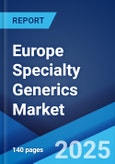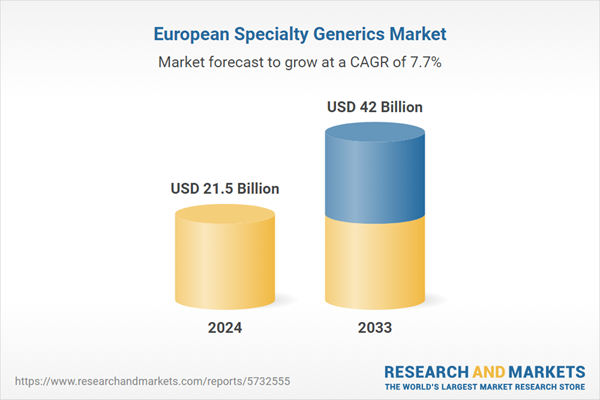Specialty generics refer to complex, difficult-to-produce medications that are created as a lower-cost alternative to brand-name drugs. These drugs are generally used to treat chronic conditions and diseases that require long-term therapy, such as cancer, autoimmune disorders, and human immunodeficiency virus (HIV). Specialty generics should be identical in both chemical structure and therapeutic effect to the brand-name drug it is intended to replace. The production of these drugs requires a high level of expertise and sophisticated technology to ensure quality control and consistency. Specialty generics are composed of the same active ingredient as the brand-name drug but may differ in other components, such as excipients, fillers, and binders. Currently, there are two types of product variants, such as biosimilars and complex generics. Biosimilars are drugs that are similar to biologic drugs, whereas complex generics are generic versions of drugs that are chemically and structurally complex.
Europe Specialty Generics Market Trends
Europe specialty generics market is primarily boosted by the growing geriatric population, increasing prevalence of chronic diseases, and the rising demand for affordable medicines. Additionally, the implementation of favorable regulatory guidelines by the European Medicines Agency (EMA) and the increasing adoption of biosimilars are boosting the market growth. Apart from this, several manufacturers are developing cost-effective biosimilars that offer similar efficacy and safety as branded drugs, which is providing an impetus to the market growth. Furthermore, burgeoning investments by leading pharmaceutical companies in research and development (R&D) activities to develop innovative drugs and the rising awareness about the benefits of specialty generic drugs are providing a considerable thrust to the market growth. Moreover, the integration of robotics and artificial intelligence (AI) in the manufacturing process to enable automation, reduce manual labor, maintain product quality, and enhance overall efficiency is positively influencing the market growth. Besides this, the increasing focus on expanding the product portfolio by key players, the growing demand for personalized medicine, the surging adoption of e-prescriptions, the increasing consumer awareness and acceptance of specialty generics, rising healthcare expenditure, extensive research and development (R&D) activities, and the development of novel drug delivery technologies are accelerating the market growth.Market Segmentation
This report provides an analysis of the key trends in each sub-segment of the Europe specialty generics market report, along with forecasts at the regional and country level from 2025-2033. The report has categorized the market based on route of administration, indication and distribution channel.Route of Administration Insights
- Injectables
- Oral
- Others
Indication Insights
- Oncology
- Autoimmune Diseases
- Infectious Diseases
- Others
Distributional Channel Insights
- Retail Pharmacies
- Specialty Pharmacies
- Hospital Pharmacies
Regional Insights
- Italy
- Germany
- France
- United Kingdom
- Spain
- Rest of Europe
Competitive Landscape
The report has also provided a comprehensive analysis of the competitive landscape in the Europe specialty generics market. Competitive analysis such as market structure, market share by key players, player positioning, top winning strategies, competitive dashboard, and company evaluation quadrant has been covered in the report. The leading players in the European specialty generics industry have also been examined in the report.Key Questions Answered in This Report
1. What was the size of the Europe specialty generics market in 2024?2. What is the expected growth rate of the Europe specialty generics market during 2025-2033?
3. What are the key factors driving the Europe specialty generics market?
4. What has been the impact of COVID-19 on the Europe specialty generics market?
5. What is the breakup of the Europe specialty generics market based on the route of administration?
6. What is the breakup of the Europe specialty generics market based on the indication?
7. What is the breakup of the Europe specialty generics market based on the distribution channel?
8. What are the key regions in the Europe specialty generics market?
Table of Contents
Table Information
| Report Attribute | Details |
|---|---|
| No. of Pages | 140 |
| Published | February 2025 |
| Forecast Period | 2024 - 2033 |
| Estimated Market Value ( USD | $ 21.5 Billion |
| Forecasted Market Value ( USD | $ 42 Billion |
| Compound Annual Growth Rate | 7.7% |
| Regions Covered | Europe |









